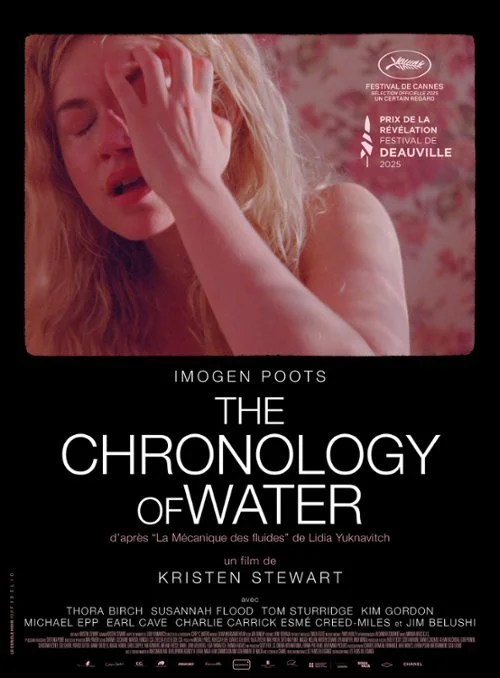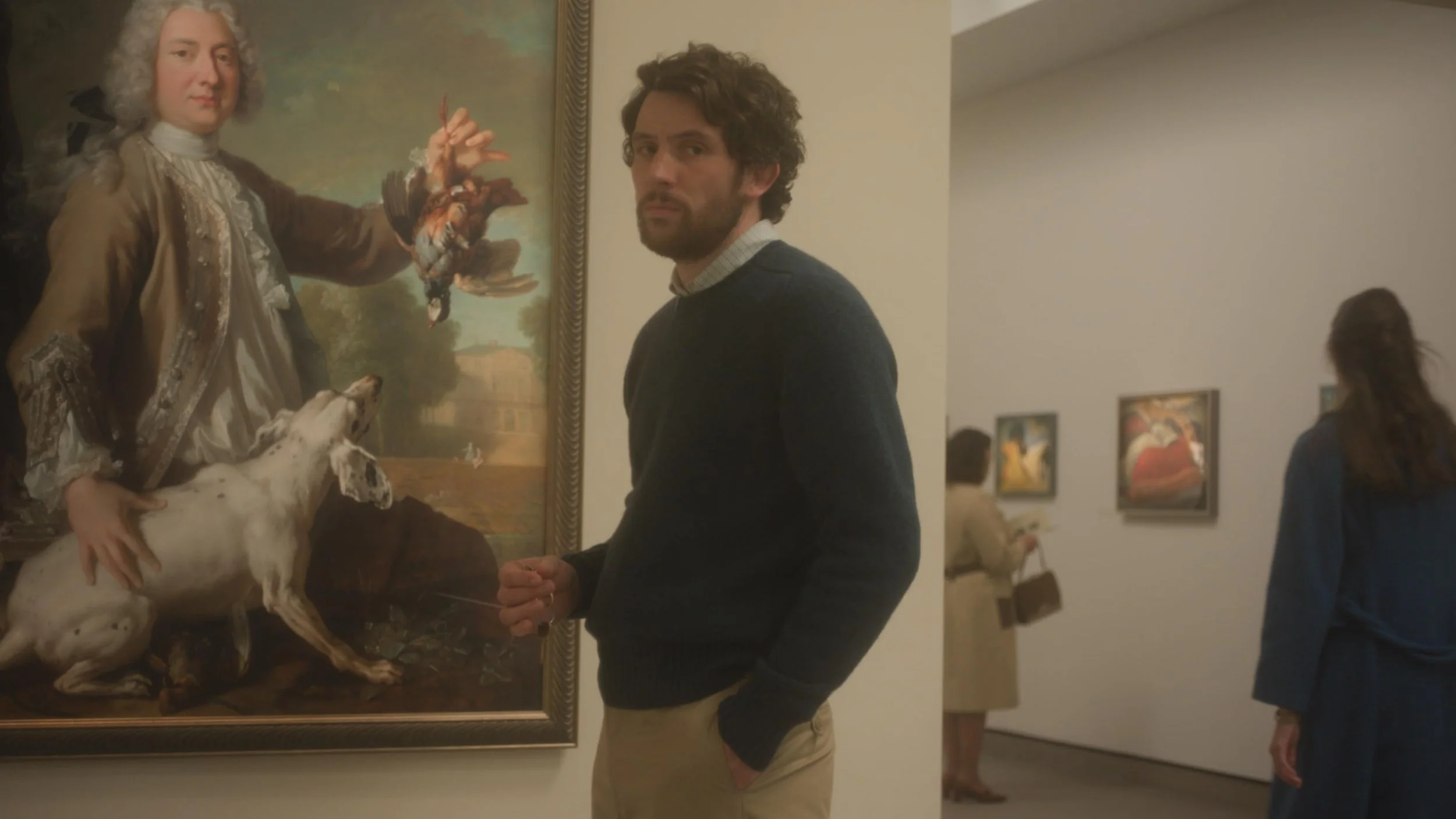The Chronology of Water
The Chronology of Never-Ending Water.
The Chronology of Water — Kristen Stewart’s directorial debut — is an adaptation of Lidia Yuknavitch’s memoir of the same name. Back in May, I literally ran straight from the plane to the cinema in Cannes, trying to catch the premiere, but I was seven minutes late. The film finally caught up with me at the Warsaw Film Festival 2025. Did I miss much since May? Well... not really.
The story follows Lidia’s life — her coming of age and her journey toward self-discovery. She escapes a toxic, abusive home environment and heads to college, where she dives into every kind of entertainment imaginable: alcohol, drugs, sexual experiments. She loses her scholarship but finds herself in writing — and that eventually brings her to the University of Oregon, where she works with writer Ken Kesey. Through this, she keeps exploring herself, her sexuality, and various BDSM practices, eventually becoming more confident, finding her identity, growing up, and starting a family.
The film is long. Very long. Split into chapters, it moves at a very slow pace — at some point you start feeling like you’ve been watching it forever. Especially considering how little the main character actually speaks; most of it is voiceover narration, which quickly turns monotonous because she’s basically quoting Tumblr posts half of the time. The film tackles a lot of social issues — identity crisis, abuse, addiction, self-search — and it’s a fragmented, slightly painful memoir story that, while looking simple on paper, plays out as quite heavy on screen.
It’s a dramatic, niche, slightly pretentious American indie film in that very 2000s arthouse style. Shot on 16mm film, it has this undeniably beautiful, grainy, documentary vibe. But at some point, it becomes exhausting — you start to drown in that endless stream, just like the protagonist in her own “water”, which represents life itself — something that keeps flowing, unstoppable.
This film either wants to seem — or truly is (I don’t exclude the possibility that I simply didn’t get it) — something raw and exclusive, like “only the chosen ones will get it”. It tries really hard to be that kind of niche art piece but often plays with its themes too literally: sex equals freedom; being a little crazy and not caring about yourself equals authenticity; pain equals growth; you can’t drink or smoke away trauma, but you can dissolve in it and become great. And all of that turns into a bit of a “too much” moment.
In the end, this is a story about a woman so broken by others, so inconsistent and so dissolved in herself that it takes her forever to figure out the simplest truths — which is fine, and even realistic — but the film doesn’t present it clearly enough to work as a cohesive coming-of-age biography. The story flows somewhere, like water, but not always with direction.
Kristen Stewart deserves some praise for tackling such a complex and personal subject in such a nontrivial way — the film definitely looks and feels distinct. And Imogen Poots, in the lead role, gives a truly committed performance; it feels like she gave it all.
If I had to sum up The Chronology of Water as a debut, I’d say that Stewart’s first pancake didn’t turn out completely raw — but it definitely got a bit burnt on the edges.
5/10




